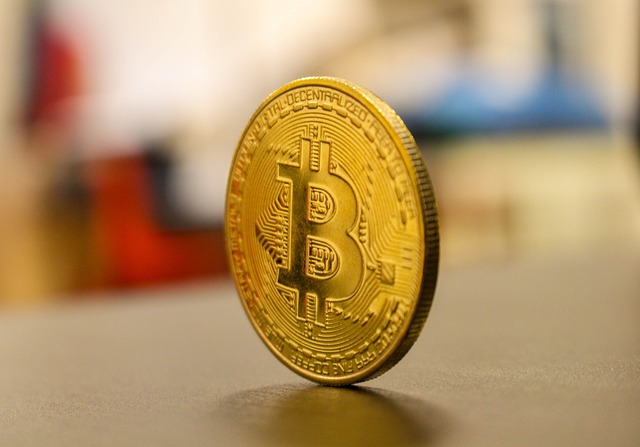DeFi Technology Breakthroughs: Shaping the Future of Finance
DeFi Technology Breakthroughs: Shaping the Future of Finance

The Evolution of Decentralized Finance
Decentralized finance, or DeFi, has come a long way since its inception. From its humble beginnings as a niche concept, it has gradually gained recognition as a potential game-changer in the financial industry. What started off as a vision for a more inclusive, transparent, and autonomous financial system has now evolved into a diverse ecosystem of decentralized applications (dApps) and protocols that aim to disrupt traditional finance.
One of the key milestones in the evolution of DeFi was the advent of blockchain technology. By utilizing a decentralized, transparent, and immutable ledger, blockchain has enabled the creation of trustless systems that eliminate the need for intermediary institutions. This revolutionary technology has paved the way for the development of decentralized lending platforms, decentralized exchanges, and even decentralized prediction markets, among others. As a result, individuals can now perform various financial activities, such as borrowing, lending, and trading, directly without the reliance on traditional financial intermediaries. The evolution of DeFi has not only challenged the existing financial system but has also sparked a sense of empowerment among individuals, giving them control over their financial lives like never before.
How Blockchain is Revolutionizing the Financial Industry
One of the most significant ways in which blockchain is revolutionizing the financial industry is through its ability to enhance security and transparency. In traditional financial systems, transactions and records are often centralized, making them vulnerable to hacking and manipulation. However, with blockchain technology, transactions are recorded and verified on a decentralized network of computers, known as nodes, which ensures that each transaction is secure and tamper-proof.
Another major advantage that blockchain brings to the financial industry is increased efficiency and cost reduction. Traditional financial transactions often involve intermediaries such as banks, clearinghouses, and brokers, which can slow down the process and increase costs. With blockchain, these intermediaries can be eliminated, as the technology enables direct peer-to-peer transactions. This not only speeds up the process but also significantly reduces transaction costs, making financial services more accessible and affordable for individuals and businesses alike.
Exploring the Potential of Smart Contracts in Finance
Smart contracts have emerged as one of the most promising advancements in the world of finance. These self-executing contracts, running on blockchain technology, hold the potential to revolutionize the way financial transactions are conducted. By automating processes and eliminating the need for intermediaries, smart contracts bring efficiency, transparency, and cost-effectiveness to the financial industry.
Imagine a world where complex financial agreements, such as loan agreements or insurance policies, are automatically executed and enforced by a code rather than relying on lengthy paperwork and trust in third parties. With smart contracts, parties involved in a financial transaction can have peace of mind knowing that everything will be executed as programmed, eliminating the possibility of fraud or manipulation. Moreover, the immutability of the blockchain ensures that no party can alter the terms of the contract once it is deployed, providing a high level of security and trust. With such immense potential, it’s no surprise that smart contracts are gaining traction in various sectors, including banking, insurance, and supply chain management.
• Smart contracts automate processes and eliminate the need for intermediaries, bringing efficiency, transparency, and cost-effectiveness to finance.
• They have the potential to revolutionize complex financial agreements by automatically executing and enforcing them through code.
• Smart contracts provide peace of mind by eliminating the possibility of fraud or manipulation in financial transactions.
• The immutability of blockchain ensures that no party can alter the terms of a smart contract once it is deployed, providing high security and trust.
• Smart contracts are gaining traction in sectors such as banking, insurance, and supply chain management due to their immense potential.
Unlocking Global Financial Inclusion with DeFi
Decentralized Finance (DeFi) has emerged as a powerful tool in unlocking global financial inclusion. While traditional banking systems have limited access, especially for those in underserved regions, DeFi platforms offer a revolutionary way for individuals to participate in the global financial market. By leveraging blockchain technology, DeFi eliminates the need for intermediaries, enabling seamless transactions and financial services for people around the world.
One of the key advantages of DeFi in promoting global financial inclusion is its accessibility. Traditional financial services often require individuals to meet certain criteria, such as a minimum account balance, credit history, or physical proximity to a bank branch. However, DeFi removes these barriers by allowing anyone with an internet connection to participate. This means that individuals who were previously excluded from the formal financial system can now access a wide range of financial services, such as borrowing and lending, asset management, and even participation in various investment opportunities. Through DeFi, financial inclusion becomes a reality, empowering individuals to take control of their financial future regardless of their location or socioeconomic background.
Bridging Traditional Finance and DeFi: The Interoperability Challenge
Traditional finance and decentralized finance (DeFi) have long existed as separate realms within the financial industry. Traditional finance, characterized by centralized institutions, has been the norm for centuries, while DeFi, built on blockchain technology, is a more recent innovation. However, as the potential of DeFi becomes increasingly recognized, bridging the gap between these two worlds is becoming a crucial challenge.
One of the main obstacles to achieving seamless interoperability between traditional finance and DeFi is the difference in their underlying infrastructure. Traditional finance relies on centralized authorities such as banks and regulatory bodies to facilitate transactions and ensure compliance. On the other hand, DeFi operates through decentralized networks, where transactions are governed by smart contracts and verified by a network of nodes. This fundamental difference in structure creates barriers to integration, as traditional financial systems are not designed to interact seamlessly with DeFi protocols. Consequently, efforts to bridge the gap between these domains entail the creation of protocols and frameworks that allow for seamless interoperability, enabling users to move assets and information securely and seamlessly across both realms.
By breaking down these barriers, the potential benefits are substantial. Bridging traditional finance and DeFi could enable traditional financial institutions to leverage the efficiency, transparency, and security provided by blockchain technology. Additionally, it could introduce more liquidity and accessibility into DeFi, as users gain access to a wider range of financial services and investment opportunities. Ultimately, overcoming the interoperability challenge between traditional finance and DeFi holds the potential to revolutionize the financial industry, creating a more inclusive and efficient system that combines the best of both worlds.
The Rise of Decentralized Exchanges: A Game Changer for Trading
Decentralized exchanges, also known as DEXs, have emerged as a game changer in the world of trading. These platforms operate on a peer-to-peer basis, eliminating the need for intermediaries and allowing traders to directly interact with each other.

Another striking feature of decentralized exchanges is their ability to provide liquidity through automated market-making protocols. Traditionally, liquidity has been a challenge for smaller markets or illiquid assets due to the dominance of centralized exchanges.

Empowering Individuals with Peer-to-Peer Lending on the Blockchain
Peer-to-peer lending, once an obscure method of borrowing and lending, has gained significant popularity in recent years.

By leveraging blockchain technology, peer-to-peer lending platforms offer a secure and transparent environment for borrowers and lenders to interact. Smart contracts, the self-executing agreements on the blockchain, ensure that the terms of the loan are met, reducing the risk of defaults and frauds. Additionally, by enabling individuals to lend and borrow directly from one another, peer-to-peer lending on the blockchain fosters a sense of community and trust among participants. This disruption in the lending industry has the potential to democratize access to credit, especially for those who have been historically underserved by traditional banking systems. As a result, more individuals can now benefit from affordable loans and invest in their education, start a business, or improve their livelihoods.
The Role of Stablecoins in Achieving Stability in DeFi
Decentralized Finance (DeFi) has witnessed tremendous growth in recent years, fueled by the innovation and potential of blockchain technology. However, amidst this rapid expansion, one critical challenge that emerged was the issue of stability. Enter stablecoins – digital currencies that are pegged to a stable asset, such as fiat currency or a basket of commodities. Stablecoins play a crucial role in achieving stability within the DeFi ecosystem, providing users with a reliable and predictable value, thereby minimizing the volatility inherent in other cryptocurrencies.
The primary advantage of stablecoins is their ability to maintain a steady price, which makes them an ideal medium of exchange and unit of account within the DeFi space. Unlike traditional cryptocurrencies, stablecoins offer a stable value that is independent of market fluctuations, making them suitable for everyday transactions. Furthermore, stablecoins enable users to mitigate counterparty risk when using DeFi platforms by providing a trusted and transparent store of value. By having a stable value and being backed by real-world assets or collateral, stablecoins instill confidence in users and contribute to the sustainability and growth of the DeFi ecosystem.
Leveraging Decentralized Oracles for Reliable Data in DeFi
The reliability of data is a crucial aspect in the decentralized finance (DeFi) ecosystem. Without accurate and trustworthy information, the entire system can become vulnerable to manipulation and fraudulent activities. This is where decentralized oracles come into the picture. They serve as a bridge between the real world and the blockchain, providing reliable and verifiable data that can be used in various financial applications.
Decentralized oracles ensure that data obtained from external sources, such as price feeds or market data, is reliable and tamper-proof. They achieve this by leveraging a network of nodes that validate and confirm the accuracy of the data before it is accepted on the blockchain. By using decentralized oracles, DeFi platforms can maintain trust and security within their systems, allowing for seamless integration with traditional financial services and facilitating the development of innovative financial products. With the rising popularity of DeFi, decentralized oracles play a crucial role in enabling the ecosystem to thrive and fulfill its potential.
The Future of DeFi: Challenges and Opportunities Ahead
The future of decentralized finance (DeFi) is filled with both challenges and opportunities. As the industry continues to grow and evolve, it faces obstacles that must be overcome in order to reach its full potential. One of the key challenges is the need for regulatory clarity. Governments around the world are still grappling with how to regulate DeFi, which can hinder its widespread adoption and development. Additionally, scalability remains a pressing issue. As more people flock to DeFi platforms, the Ethereum network, which is currently the dominant blockchain for DeFi, struggles to handle the increased demand, leading to high fees and slower transaction times.
However, amidst these challenges, there are ample opportunities for DeFi to flourish. One of the most exciting prospects is the potential to revolutionize traditional financial systems. DeFi has the ability to provide financial services to the unbanked and underbanked populations, giving them access to loans, savings, and investment opportunities. This could greatly empower individuals and promote financial inclusion on a global scale. Moreover, DeFi opens up avenues for innovation in areas such as lending, insurance, and asset management, allowing for the creation of new financial products and services that are more accessible, transparent, and efficient than ever before. The future of DeFi holds immense potential, and overcoming the challenges will pave the way for a more inclusive and decentralized financial ecosystem.
What is DeFi?
DeFi stands for decentralized finance, which refers to the use of blockchain technology and smart contracts to recreate traditional financial systems in a decentralized manner.
How is blockchain revolutionizing the financial industry?
Blockchain technology allows for secure and transparent transactions without the need for intermediaries, providing greater efficiency and eliminating the risk of fraud.
What are smart contracts and how are they being used in finance?
Smart contracts are self-executing contracts with terms and conditions written into code. In finance, they can automate various processes, such as lending, borrowing, and trading, without the need for intermediaries.
How does DeFi contribute to global financial inclusion?
DeFi removes barriers to accessing financial services by allowing anyone with an internet connection to participate in the financial system, regardless of their location or socioeconomic status.
What is the interoperability challenge between traditional finance and DeFi?
Traditional finance operates on centralized systems, while DeFi is decentralized. The challenge lies in creating bridges that enable seamless communication and transactions between the two systems.
How are decentralized exchanges changing the game for trading?
Decentralized exchanges eliminate the need for intermediaries and centralized control, allowing users to trade directly with each other. This increases liquidity, lowers costs, and improves security.
How does peer-to-peer lending on the blockchain empower individuals?
Peer-to-peer lending on the blockchain allows individuals to directly lend and borrow funds without the need for traditional financial institutions. It provides more accessibility and control over financial decisions.
What role do stablecoins play in achieving stability in DeFi?
Stablecoins are cryptocurrencies designed to maintain a stable value, often pegged to a fiat currency. They provide stability and serve as a reliable medium of exchange within the volatile cryptocurrency market.
How are decentralized oracles used for reliable data in DeFi?
Decentralized oracles act as a bridge between the blockchain and real-world data, providing accurate and trustworthy information necessary for executing smart contracts and making informed financial decisions.
What are the challenges and opportunities ahead for DeFi?
Some challenges include regulatory concerns, scalability issues, and security risks. However, the opportunities for innovation, financial inclusion, and disruption of traditional finance are immense in the future of DeFi.
Todays Featured Product:
Buy, exchange and grow your crypto securely with a Ledger hardware wallet, combined with the Ledger Live app. It’s never been easier to keep your crypto safe and accessible. Buy direct from Ledger.com and get todays Special Offers Here.




